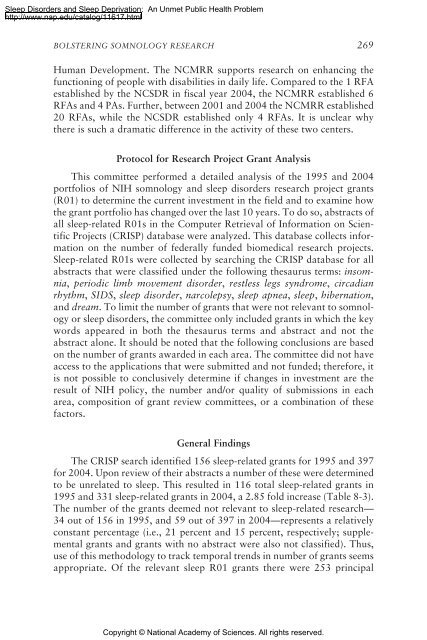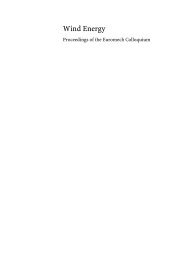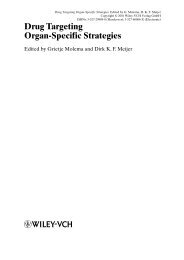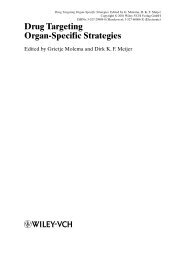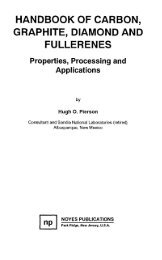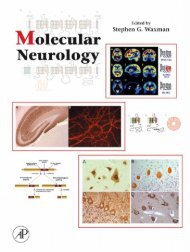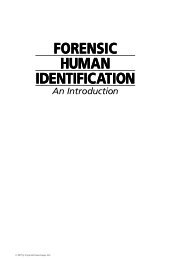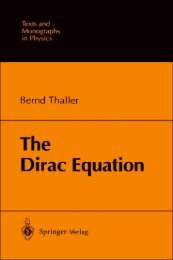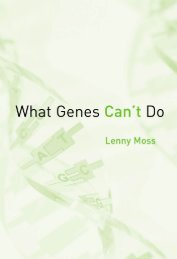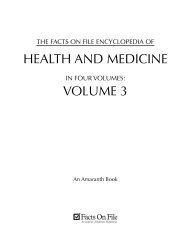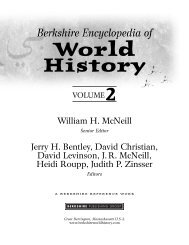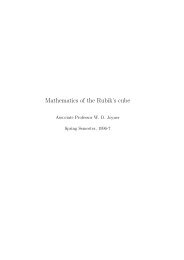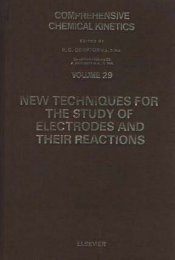- Page 1 and 2:
http://www.nap.edu/catalog/11617.ht
- Page 3 and 4:
Sleep Disorders and Sleep Deprivati
- Page 5 and 6:
Sleep Disorders and Sleep Deprivati
- Page 7 and 8:
Sleep Disorders and Sleep Deprivati
- Page 9 and 10:
Sleep Disorders and Sleep Deprivati
- Page 11 and 12:
Sleep Disorders and Sleep Deprivati
- Page 13 and 14:
Sleep Disorders and Sleep Deprivati
- Page 15 and 16:
Sleep Disorders and Sleep Deprivati
- Page 17 and 18:
Sleep Disorders and Sleep Deprivati
- Page 19 and 20:
Sleep Disorders and Sleep Deprivati
- Page 21 and 22:
Sleep Disorders and Sleep Deprivati
- Page 23 and 24:
Sleep Disorders and Sleep Deprivati
- Page 25 and 26:
Sleep Disorders and Sleep Deprivati
- Page 27 and 28:
Sleep Disorders and Sleep Deprivati
- Page 29 and 30:
Sleep Disorders and Sleep Deprivati
- Page 31 and 32:
Sleep Disorders and Sleep Deprivati
- Page 33 and 34:
Sleep Disorders and Sleep Deprivati
- Page 35 and 36:
Sleep Disorders and Sleep Deprivati
- Page 37 and 38:
Sleep Disorders and Sleep Deprivati
- Page 39 and 40:
Sleep Disorders and Sleep Deprivati
- Page 41 and 42:
Sleep Disorders and Sleep Deprivati
- Page 43 and 44:
Sleep Disorders and Sleep Deprivati
- Page 45 and 46:
Sleep Disorders and Sleep Deprivati
- Page 47 and 48:
Sleep Disorders and Sleep Deprivati
- Page 49 and 50:
Sleep Disorders and Sleep Deprivati
- Page 51 and 52:
Sleep Disorders and Sleep Deprivati
- Page 53 and 54:
Sleep Disorders and Sleep Deprivati
- Page 55 and 56:
Sleep Disorders and Sleep Deprivati
- Page 57 and 58:
Sleep Disorders and Sleep Deprivati
- Page 59 and 60:
Sleep Disorders and Sleep Deprivati
- Page 61 and 62:
Sleep Disorders and Sleep Deprivati
- Page 63 and 64:
Sleep Disorders and Sleep Deprivati
- Page 65 and 66:
Sleep Disorders and Sleep Deprivati
- Page 67 and 68:
Sleep Disorders and Sleep Deprivati
- Page 69 and 70:
Sleep Disorders and Sleep Deprivati
- Page 71 and 72:
Sleep Disorders and Sleep Deprivati
- Page 73 and 74:
Sleep Disorders and Sleep Deprivati
- Page 75 and 76:
Sleep Disorders and Sleep Deprivati
- Page 77 and 78:
Sleep Disorders and Sleep Deprivati
- Page 79 and 80:
Sleep Disorders and Sleep Deprivati
- Page 81 and 82:
Sleep Disorders and Sleep Deprivati
- Page 83 and 84:
Sleep Disorders and Sleep Deprivati
- Page 85 and 86:
Sleep Disorders and Sleep Deprivati
- Page 87 and 88:
Sleep Disorders and Sleep Deprivati
- Page 89 and 90:
Sleep Disorders and Sleep Deprivati
- Page 91 and 92:
Sleep Disorders and Sleep Deprivati
- Page 93 and 94:
Sleep Disorders and Sleep Deprivati
- Page 95 and 96:
Sleep Disorders and Sleep Deprivati
- Page 97 and 98:
Sleep Disorders and Sleep Deprivati
- Page 99 and 100:
Sleep Disorders and Sleep Deprivati
- Page 101 and 102:
Sleep Disorders and Sleep Deprivati
- Page 103 and 104:
Sleep Disorders and Sleep Deprivati
- Page 105 and 106:
Sleep Disorders and Sleep Deprivati
- Page 107 and 108:
Sleep Disorders and Sleep Deprivati
- Page 109 and 110:
Sleep Disorders and Sleep Deprivati
- Page 111 and 112:
Sleep Disorders and Sleep Deprivati
- Page 113 and 114:
Sleep Disorders and Sleep Deprivati
- Page 115 and 116:
Sleep Disorders and Sleep Deprivati
- Page 117 and 118:
Sleep Disorders and Sleep Deprivati
- Page 119 and 120:
Sleep Disorders and Sleep Deprivati
- Page 121 and 122:
Sleep Disorders and Sleep Deprivati
- Page 123 and 124:
Sleep Disorders and Sleep Deprivati
- Page 125 and 126:
Sleep Disorders and Sleep Deprivati
- Page 127 and 128:
Sleep Disorders and Sleep Deprivati
- Page 129 and 130:
Sleep Disorders and Sleep Deprivati
- Page 131 and 132:
Sleep Disorders and Sleep Deprivati
- Page 133 and 134:
Sleep Disorders and Sleep Deprivati
- Page 135 and 136:
Sleep Disorders and Sleep Deprivati
- Page 137 and 138:
Sleep Disorders and Sleep Deprivati
- Page 139 and 140:
Sleep Disorders and Sleep Deprivati
- Page 141 and 142:
Sleep Disorders and Sleep Deprivati
- Page 143 and 144:
Sleep Disorders and Sleep Deprivati
- Page 145 and 146:
Sleep Disorders and Sleep Deprivati
- Page 147 and 148:
Sleep Disorders and Sleep Deprivati
- Page 149 and 150:
Sleep Disorders and Sleep Deprivati
- Page 151 and 152:
Sleep Disorders and Sleep Deprivati
- Page 153 and 154:
Sleep Disorders and Sleep Deprivati
- Page 155 and 156:
Sleep Disorders and Sleep Deprivati
- Page 157 and 158:
Sleep Disorders and Sleep Deprivati
- Page 159 and 160:
Sleep Disorders and Sleep Deprivati
- Page 161 and 162:
Sleep Disorders and Sleep Deprivati
- Page 163 and 164:
Sleep Disorders and Sleep Deprivati
- Page 165 and 166:
Sleep Disorders and Sleep Deprivati
- Page 167 and 168:
Sleep Disorders and Sleep Deprivati
- Page 169 and 170:
Sleep Disorders and Sleep Deprivati
- Page 171 and 172:
Sleep Disorders and Sleep Deprivati
- Page 173 and 174:
Sleep Disorders and Sleep Deprivati
- Page 175 and 176:
Sleep Disorders and Sleep Deprivati
- Page 177 and 178:
Sleep Disorders and Sleep Deprivati
- Page 179 and 180:
Sleep Disorders and Sleep Deprivati
- Page 181 and 182:
Sleep Disorders and Sleep Deprivati
- Page 183 and 184:
Sleep Disorders and Sleep Deprivati
- Page 185 and 186:
Sleep Disorders and Sleep Deprivati
- Page 187 and 188:
Sleep Disorders and Sleep Deprivati
- Page 189 and 190:
Sleep Disorders and Sleep Deprivati
- Page 191 and 192:
Sleep Disorders and Sleep Deprivati
- Page 193 and 194:
Sleep Disorders and Sleep Deprivati
- Page 195 and 196:
Sleep Disorders and Sleep Deprivati
- Page 197 and 198:
Sleep Disorders and Sleep Deprivati
- Page 199 and 200:
Sleep Disorders and Sleep Deprivati
- Page 201 and 202:
Sleep Disorders and Sleep Deprivati
- Page 203 and 204:
Sleep Disorders and Sleep Deprivati
- Page 205 and 206:
Sleep Disorders and Sleep Deprivati
- Page 207 and 208:
Sleep Disorders and Sleep Deprivati
- Page 209 and 210:
Sleep Disorders and Sleep Deprivati
- Page 211 and 212:
Sleep Disorders and Sleep Deprivati
- Page 213 and 214:
Sleep Disorders and Sleep Deprivati
- Page 215 and 216:
Sleep Disorders and Sleep Deprivati
- Page 217 and 218:
Sleep Disorders and Sleep Deprivati
- Page 219 and 220:
Sleep Disorders and Sleep Deprivati
- Page 221 and 222:
Sleep Disorders and Sleep Deprivati
- Page 223 and 224:
Sleep Disorders and Sleep Deprivati
- Page 225 and 226:
Sleep Disorders and Sleep Deprivati
- Page 227 and 228:
Sleep Disorders and Sleep Deprivati
- Page 229 and 230:
Sleep Disorders and Sleep Deprivati
- Page 231 and 232:
Sleep Disorders and Sleep Deprivati
- Page 233 and 234:
Sleep Disorders and Sleep Deprivati
- Page 235 and 236:
Sleep Disorders and Sleep Deprivati
- Page 237 and 238:
Sleep Disorders and Sleep Deprivati
- Page 239 and 240: Sleep Disorders and Sleep Deprivati
- Page 241 and 242: Sleep Disorders and Sleep Deprivati
- Page 243 and 244: Sleep Disorders and Sleep Deprivati
- Page 245 and 246: Sleep Disorders and Sleep Deprivati
- Page 247 and 248: Sleep Disorders and Sleep Deprivati
- Page 249 and 250: Sleep Disorders and Sleep Deprivati
- Page 251 and 252: Sleep Disorders and Sleep Deprivati
- Page 253 and 254: Sleep Disorders and Sleep Deprivati
- Page 255 and 256: Sleep Disorders and Sleep Deprivati
- Page 257 and 258: Sleep Disorders and Sleep Deprivati
- Page 259 and 260: Sleep Disorders and Sleep Deprivati
- Page 261 and 262: Sleep Disorders and Sleep Deprivati
- Page 263 and 264: Sleep Disorders and Sleep Deprivati
- Page 265 and 266: Sleep Disorders and Sleep Deprivati
- Page 267 and 268: Sleep Disorders and Sleep Deprivati
- Page 269 and 270: Sleep Disorders and Sleep Deprivati
- Page 271 and 272: Sleep Disorders and Sleep Deprivati
- Page 273 and 274: Sleep Disorders and Sleep Deprivati
- Page 275 and 276: Sleep Disorders and Sleep Deprivati
- Page 277 and 278: Sleep Disorders and Sleep Deprivati
- Page 279 and 280: Sleep Disorders and Sleep Deprivati
- Page 281 and 282: Sleep Disorders and Sleep Deprivati
- Page 283 and 284: Sleep Disorders and Sleep Deprivati
- Page 285 and 286: Sleep Disorders and Sleep Deprivati
- Page 287 and 288: Sleep Disorders and Sleep Deprivati
- Page 289: Sleep Disorders and Sleep Deprivati
- Page 293 and 294: Sleep Disorders and Sleep Deprivati
- Page 295 and 296: Sleep Disorders and Sleep Deprivati
- Page 297 and 298: Sleep Disorders and Sleep Deprivati
- Page 299 and 300: Sleep Disorders and Sleep Deprivati
- Page 301 and 302: Sleep Disorders and Sleep Deprivati
- Page 303 and 304: Sleep Disorders and Sleep Deprivati
- Page 305 and 306: Sleep Disorders and Sleep Deprivati
- Page 307 and 308: Sleep Disorders and Sleep Deprivati
- Page 309 and 310: Sleep Disorders and Sleep Deprivati
- Page 311 and 312: Sleep Disorders and Sleep Deprivati
- Page 313 and 314: Sleep Disorders and Sleep Deprivati
- Page 315 and 316: Sleep Disorders and Sleep Deprivati
- Page 317 and 318: Sleep Disorders and Sleep Deprivati
- Page 319 and 320: Sleep Disorders and Sleep Deprivati
- Page 321 and 322: Sleep Disorders and Sleep Deprivati
- Page 323 and 324: Sleep Disorders and Sleep Deprivati
- Page 325 and 326: Sleep Disorders and Sleep Deprivati
- Page 327 and 328: Sleep Disorders and Sleep Deprivati
- Page 329 and 330: Sleep Disorders and Sleep Deprivati
- Page 331 and 332: Sleep Disorders and Sleep Deprivati
- Page 333 and 334: Sleep Disorders and Sleep Deprivati
- Page 335 and 336: Sleep Disorders and Sleep Deprivati
- Page 337 and 338: Sleep Disorders and Sleep Deprivati
- Page 339 and 340: Sleep Disorders and Sleep Deprivati
- Page 341 and 342:
Sleep Disorders and Sleep Deprivati
- Page 343 and 344:
Sleep Disorders and Sleep Deprivati
- Page 345 and 346:
Sleep Disorders and Sleep Deprivati
- Page 347 and 348:
Sleep Disorders and Sleep Deprivati
- Page 349 and 350:
Sleep Disorders and Sleep Deprivati
- Page 351 and 352:
Sleep Disorders and Sleep Deprivati
- Page 353 and 354:
Sleep Disorders and Sleep Deprivati
- Page 355 and 356:
Sleep Disorders and Sleep Deprivati
- Page 357 and 358:
Sleep Disorders and Sleep Deprivati
- Page 359 and 360:
Sleep Disorders and Sleep Deprivati
- Page 361 and 362:
Sleep Disorders and Sleep Deprivati
- Page 363 and 364:
Sleep Disorders and Sleep Deprivati
- Page 365 and 366:
Sleep Disorders and Sleep Deprivati
- Page 367 and 368:
Sleep Disorders and Sleep Deprivati
- Page 369 and 370:
Sleep Disorders and Sleep Deprivati
- Page 371 and 372:
Sleep Disorders and Sleep Deprivati
- Page 373 and 374:
Sleep Disorders and Sleep Deprivati
- Page 375 and 376:
Sleep Disorders and Sleep Deprivati
- Page 377 and 378:
Sleep Disorders and Sleep Deprivati
- Page 379 and 380:
Sleep Disorders and Sleep Deprivati
- Page 381 and 382:
Sleep Disorders and Sleep Deprivati
- Page 383 and 384:
Sleep Disorders and Sleep Deprivati
- Page 385 and 386:
Sleep Disorders and Sleep Deprivati
- Page 387 and 388:
Sleep Disorders and Sleep Deprivati
- Page 389 and 390:
Sleep Disorders and Sleep Deprivati
- Page 391 and 392:
Sleep Disorders and Sleep Deprivati
- Page 393 and 394:
Sleep Disorders and Sleep Deprivati
- Page 395 and 396:
Sleep Disorders and Sleep Deprivati
- Page 397 and 398:
Sleep Disorders and Sleep Deprivati
- Page 399 and 400:
Sleep Disorders and Sleep Deprivati
- Page 401 and 402:
Sleep Disorders and Sleep Deprivati
- Page 403 and 404:
Sleep Disorders and Sleep Deprivati
- Page 405 and 406:
Sleep Disorders and Sleep Deprivati
- Page 407 and 408:
Sleep Disorders and Sleep Deprivati
- Page 409 and 410:
Sleep Disorders and Sleep Deprivati
- Page 411 and 412:
Sleep Disorders and Sleep Deprivati
- Page 413 and 414:
Sleep Disorders and Sleep Deprivati
- Page 415 and 416:
Sleep Disorders and Sleep Deprivati
- Page 417 and 418:
Sleep Disorders and Sleep Deprivati
- Page 419 and 420:
Sleep Disorders and Sleep Deprivati
- Page 421 and 422:
Sleep Disorders and Sleep Deprivati
- Page 423 and 424:
Sleep Disorders and Sleep Deprivati
- Page 425:
Sleep Disorders and Sleep Deprivati


